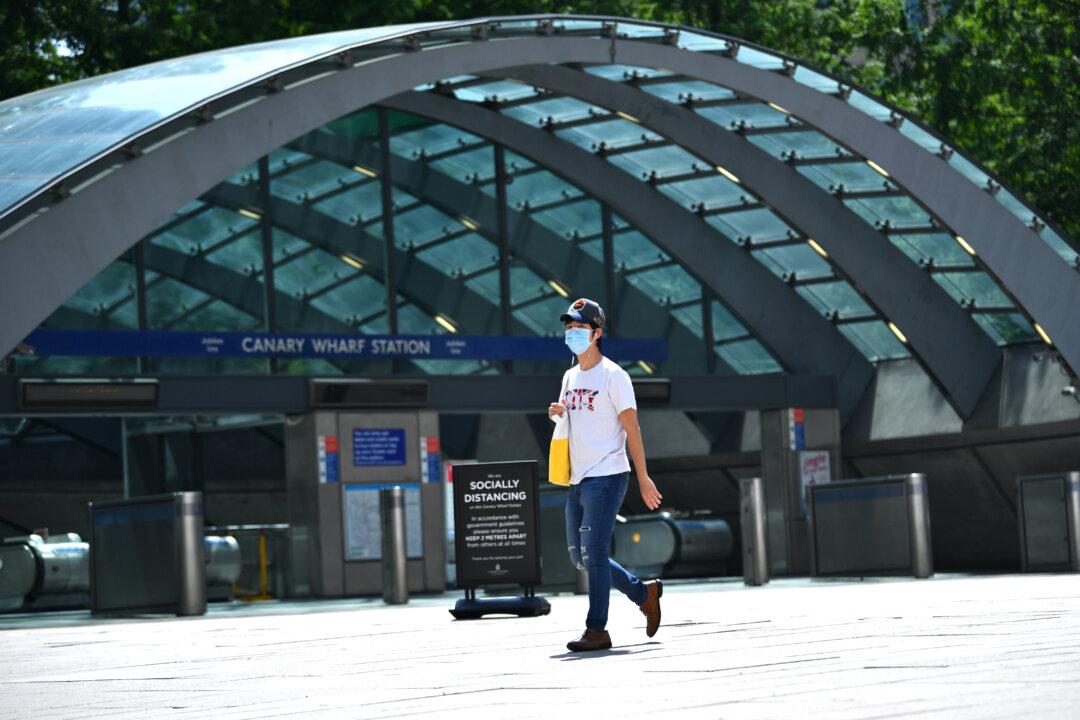LONDON—Britain’s economy could shrink by more than 14 percent this year if there is lasting damage from the coronavirus, a scenario that would push government borrowing to nearly half a trillion dollars, budget forecasters said on Tuesday.
The Office for Budget Responsibility, whose projections are used by the government, said tax hikes or spending cuts would probably be needed to fix the huge hole in the public finances.





